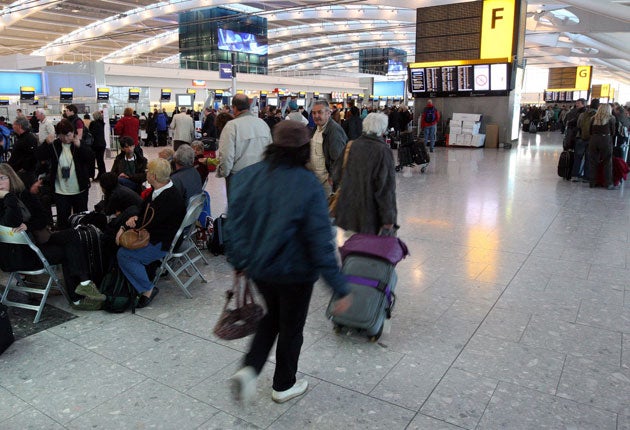Why holidays can be bad for your health
World Health Organisation issues warning on stress and offers tips for travellers

Your support helps us to tell the story
From reproductive rights to climate change to Big Tech, The Independent is on the ground when the story is developing. Whether it's investigating the financials of Elon Musk's pro-Trump PAC or producing our latest documentary, 'The A Word', which shines a light on the American women fighting for reproductive rights, we know how important it is to parse out the facts from the messaging.
At such a critical moment in US history, we need reporters on the ground. Your donation allows us to keep sending journalists to speak to both sides of the story.
The Independent is trusted by Americans across the entire political spectrum. And unlike many other quality news outlets, we choose not to lock Americans out of our reporting and analysis with paywalls. We believe quality journalism should be available to everyone, paid for by those who can afford it.
Your support makes all the difference.Travel is said to broaden the mind – but it can also damage it, experts say.
In an unprecedented move, the World Health Organisation (WHO) has issued a warning that the stress of international travel can lead to mental disorder in vulnerable people.
For the first time, the global health agency has included detailed guidance on the psychological impact of travel in its annual publication International Travel And Health.
Almost one billion people leave home to venture abroad each year, just over half of them tourists going on holiday, and mental problems are "among the leading causes of ill-health among travellers", it says.
"Psychiatric emergency" is one of the most common medical reasons for evacuation by air ambulance, along with injury and heart disease, the WHO report says. Up to 100 patients a week are brought back to the UK by air ambulance, according to the British Ambulance Association, and many more are returned on commercial aircraft, mostly accompanied by medical staff.
FlyMeNow, an air charter company based in York, said it had flown a man with bipolar disorder from Egypt back to Manchester last October, after he became manic while on holiday with his wife. "He had to be sedated for the flight; he was stretchered on to the plane and police were waiting when it landed in Manchester. He was taken to hospital where he was stabilised on drugs and discharged the next day," said Andrew Whitney, the commercial director. The cost of £25,000 was paid by the family, who did not have travel insurance.
Dan Sanders, of Oxford-based Air Medical, said the company had flown a woman from Ireland back to Germany last year accompanied by "four to five" security escorts. "There had been some violence on an earlier flight but when she got in a light plane she was fine. I think she realised no one was watching – she had no audience," he added.
Extreme anxiety such as phobia of flying is a key problem faced by travellers, and is involved in 3.5 per cent of all medical in-flight emergencies. People who suffer panic attacks may feel more comfortable in an aisle seat when travelling by plane, the WHO adds.
It warns anxiety sufferers to avoid caffeine, certain over-the-counter cold medications and the anti-malarial drug mefloquine (brand name Lariam), which has been linked with psychotic episodes in some people.
Air and road rage are on the rise, it says, and travellers arriving in exotic places, freed from the social constraints of home, are at greater risk from drink and illicit drugs, which can trigger mental breakdown. One study showed that more than half of backpackers had used illicit drugs and another found the proportion of individuals who drank alcohol more than five times a week doubled from 20 to 40 per cent.
Pilgrimages to places with historical or religious significance carry particular risks for the mentally fragile. "A traveller may become overwhelmed at pilgrimage centres such as Mecca, Jerusalem and Santiago de Compostela, as well at holy places in India," it says.
Adjustment to different cultures, lifestyle and languages can cause distress in some people. Equally, returning home can present a challenge for younger people after long-term trips, such as those taken by gap year students who have identified strongly with the new culture and may experience a sense of loss on leaving.
The WHO says medical staff should include an "enquiry into psychiatric history" as a standard part of any pre-travel consultation for vaccinations or health advice.
Join our commenting forum
Join thought-provoking conversations, follow other Independent readers and see their replies
Comments